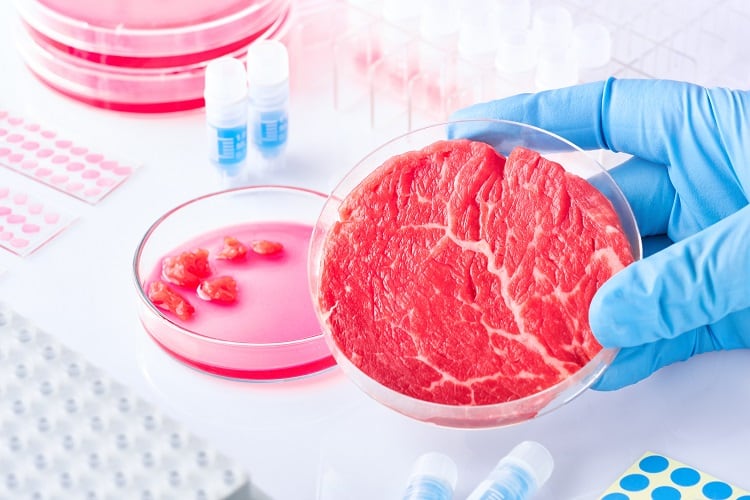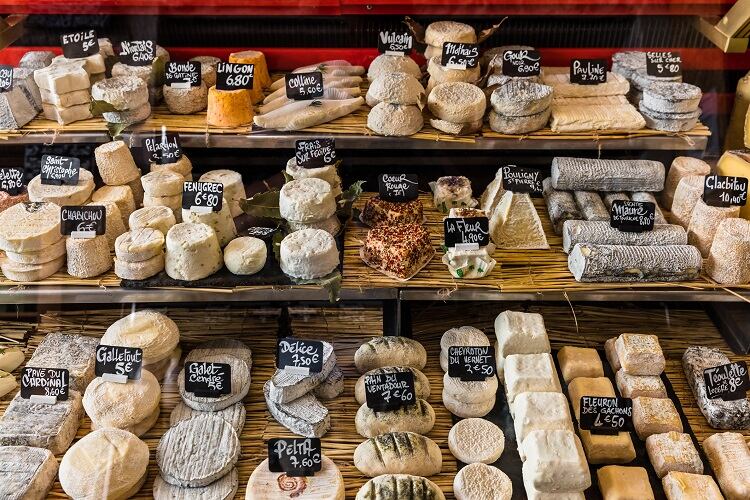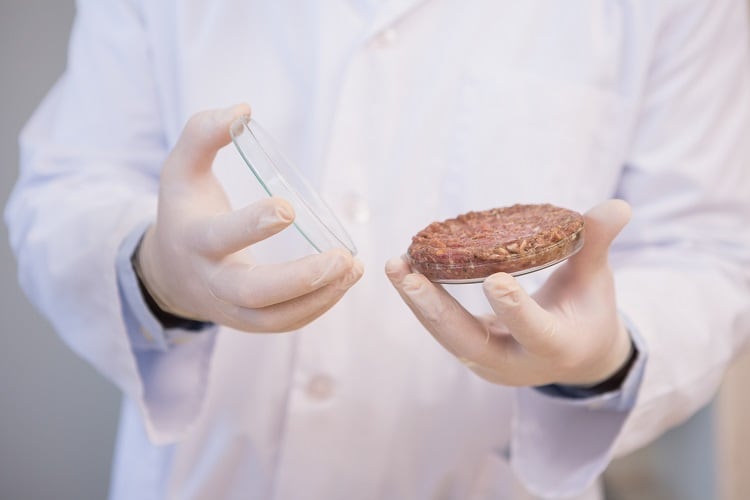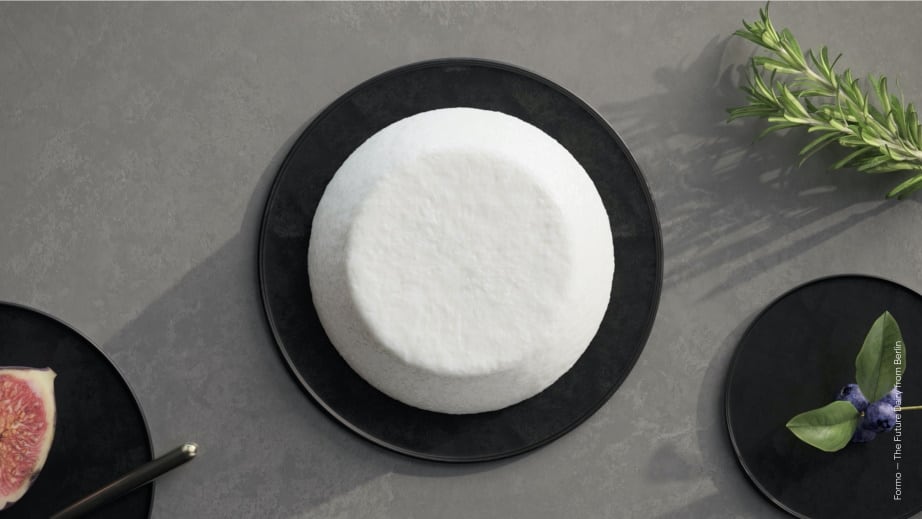With sustainability on the mind, consumers are increasingly aware of the negative impacts of intensive animal farming.
However, they remain largely unwilling to substantially reduce their intake of animal derived foods – notably meat and cheese.
Cultivated meat and dairy start-ups are working hard to offer a solution with the use of stem cells or microorganisms, and bioreactors.
No player in Europe has yet to receive regulatory approval, yet that isn’t stopping the meat space filling up with the likes of Mosa Meat, Higher Steaks, Gourmey, and BioTech Foods. Better Dairy and Formo are amongst the start-ups innovating in cow-free dairy.
But what do consumers think of all this? If, eventually, meat and dairy biotechs do get their product to market, will Europeans buy it?
Lab-grown meat: who wants a bite?
Independent research has suggested varying consumer acceptance of lab-grown meat, which along with clean- cultured- or cell-based meat, is just one of the terms used to describe animal meat grown from cell cultures taken from a live animal.
Last September, an Australian study published in Frontiers in Nutrition revealed that 72% of consumers were not ready to accept lab-grown meat. Earlier research had indicated that Europeans were likely to have lower acceptance than consumers in the US.
Around the same time, new research published in Foods suggested a growing acceptance of non-meat diets in Germany and France. However, consumer awareness around cultured meat remained low.
Even so, 44% of French and 58% of German respondents said they would be willing to try cultured meat, with 37% of French and 56% of German consumers saying they would be willing to buy it themselves.

To date, limited research has been undertaken in consumer acceptance in Spain, where cultured meat start-up BioTech Foods is located. The company, headed up by co-founder Iñigo Charola, undertook its own research a couple of years ago to gauge public opinion, the CEO explained.
Of the 1,000 people surveyed, Charola recalled that ‘most’ respondents were unfamiliar with the concept of lab-grown meat. Once they had understood, an impressive 41% agreed they would purchase it for consumption.
“The only difference we saw at that time was that younger generations [under 55 years] were keener to try this kind of product,” Charola told delegates at ProVeg International’s 2021 New Food Conference. “When you go 55 years and older, there was a little bit more resistance for the concept.”
One reason for this could also lie in consumer understanding. “With food, you have to really see and try [it] in order to make your decision. And that’s the part that we are missing in order to [conduct] massive testing or market research,” he continued.
Charola predicts the first cell-based meat product to hit the European market within three to five years.
Considering the impressive uptake of plant-based meat alternatives, however, the BioTech Foods CEO is confident. In 2020, consumption of plant-based meat grew by 45% - hitting a total market value of $1.4bn, said Charola.
“So whenever consumers have an alternative – that obviously has to comply with the taste and the price they are looking for – they go for it. The sustainability values that those kinds of products bring into the market today are very appreciated.”
Chewing the fat with EU consumers
Under the broad umbrella of cultured meat, Belgian start-up Peace of Meat is cultivating a ‘distinctive ingredient’: fat.
Once its cultivated fat receives regulatory approval, the start-up plans to sell the ingredient B2B to plant-based meat manufacturers. Managing Director David Brandes said its offerings will “help those plant-based meat producers win over meat-eating consumers” via a cell-/plant-based hybrid.
Brandes believes there is strong incentive for plant-based meat makers to integrate cultivated fat into their products. “It’s important to understand that according to several sources, only 28% of consumers think that the taste of meat alternatives is ‘good’ or ‘very good’. And one in three of those consumers…would pay more for meat alternatives if they were more similar – and tasted more similar – to meat.
“So obviously there is a big incentive for plant-based meat companies to incorporate and embrace that ingredient,” he told delegates at the New Food Conference.

When gauging market interest, Peace of Meat has understandably concentrated on customers rather than consumers. The start-up undertook a study in which it asked 50 plant-based companies whether they would be interested in including cultivated fat as an ingredient.
Findings revealed 58% of those surveyed agreed they would be happy to include cultured material into their plant-based matrixes. If Peace of Meat were to also communicate the advantages of adopting cultured fat – for example that it improves taste and texture and helps drive clean label – then 68% of respondents ‘indicated a clear willingness’, he recalled. That means that they are either ‘likely’, or ‘very likely’ to include that material into their products, which Brandes considers a ‘very promising result’.
Consumer demand for cow-free cheese
Research into consumer acceptance of cultivated meat is more advanced than in cultivated dairy.
The two technologies are significantly different. “The difference between precision fermentation and tissue engineering…is that the end product [for the former] is not cellular,” explained Raffael Wohlgensinger, founder and CEO of German start-up Formo (formerly LegenDairy).
Formo’s end product is cheese. “It is not composed of cells, compared to, for example, fat or muscle cells that you use for meat. [Instead] we are talking about proteins and fatty acids – which are the main building blocks of these products,” he explained at the ProVeg International event.
Specifically, Formo is using microorganisms instead of cows to produce animal-free milk proteins. These are then combined with plant-based fats and carbohydrates to create a base for the cheesemaking process. At present, the start-up is focused on making European cheeses, from fresh cheeses such as ricotta to aged and ripened products.

Given a lack of consumer acceptance research in this space, Formo has sought to ‘do much more’ on precision fermentation-based dairy products – and cheese specifically, explained Wohlgensinger,
While official findings will be published within the next few weeks, the founder did reveal some promising results. Formo surveyed 5,000 consumers across Brazil, Germany, India, and the US to find out whether people would try and buy the product. They also sought to better understand perceptions of precision fermentation-based dairy in general, for example whether consumers believe it is ethical, healthy, and tasty.
“What we found is that there is…a sign of so much optimism here across all age groups, across all education groups, and across all dietary groups. The acceptance of these products, even before they hit the shelves, is [more than] 70% when it comes to willingness to buy the products.”
Concerning consumer willingness to pay, Formo observed a ‘substantial’ mark-up for these products, which Wohlgensinger puts down to shoppers’ growing awareness around sustainability, ethical, and health.
“This makes us super optimistic that…we will have this growing pull effect from consumers talking to governments, talking to industry, and really asking for these products because they know they will solve a lot of problems.”





